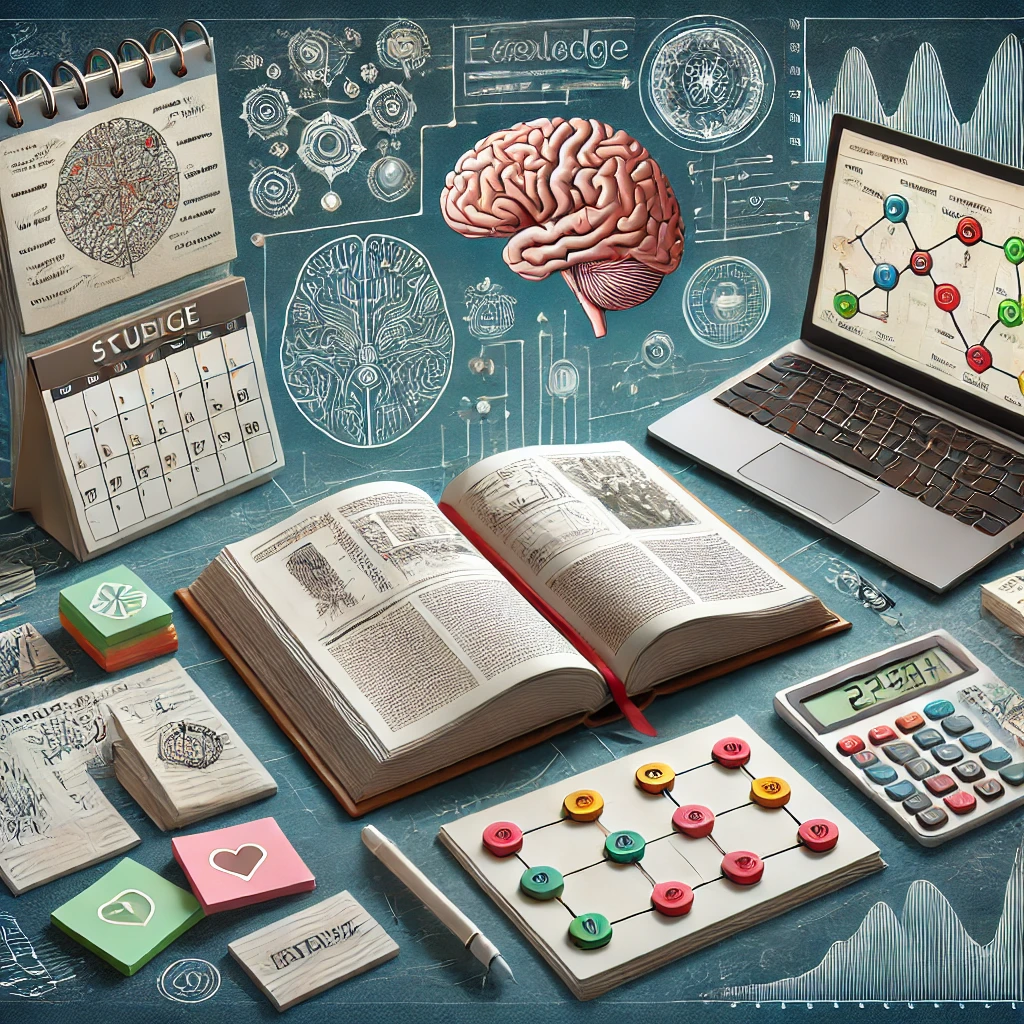In today’s fast-paced world, staying ahead of the curve requires continuous learning and regular reinforcement. Many professionals and students struggle to retain information over time, which is why regular practice is essential. Whether you’re aiming to advance in your career or simply retain information, practicing what you’ve learned is a key strategy. This guide will show you actionable techniques on how to keep your knowledge fresh with regular practice, allowing you to remain sharp in your field.
The Importance of Regular Practice in Knowledge Retention
Practice is not just about rote memorization; it’s a process that reinforces learning, helping information transfer from short-term to long-term memory. Without consistent review, it’s easy to forget even the most crucial concepts over time. Regular practice helps combat this by deepening your understanding, enhancing your ability to recall knowledge quickly, and applying it to real-world situations.
When you commit to practicing regularly, you allow yourself the opportunity to solidify your learning foundation, which will lead to better professional and personal outcomes. Keeping your knowledge fresh is essential not only for new learners but also for experts looking to maintain their edge.
Strategies to Keep Your Knowledge Fresh
Practice with Purpose
One of the first steps in keeping your knowledge fresh is to practice with a clear purpose in mind. Rather than just reviewing information passively, actively engage with the material. Set learning goals and focus on how each piece of information fits into a larger framework. This focused practice will lead to better retention.
For example, if you are learning a new language, instead of simply memorizing vocabulary words, try using them in sentences. Challenge yourself to use newly acquired words in conversations to reinforce their meaning and usage. This approach to purposeful practice ensures you’re not just memorizing but also understanding the context in which the knowledge is used.
Spaced Repetition
Spaced repetition is a proven method for ensuring long-term retention of information. This technique involves reviewing material at increasing intervals over time. Studies have shown that this is one of the most effective ways to combat the forgetting curve, a psychological phenomenon that shows how quickly we lose information if it’s not reviewed.
By using apps like Anki or Quizlet, you can create personalized study schedules that remind you to review specific concepts just before you are likely to forget them. This spaced-out review reinforces the information at just the right time, leading to stronger memory retention.
Practical Application of Knowledge
Another powerful method to keep your knowledge fresh is to apply what you’ve learned in real-world scenarios. Theoretical knowledge without practical use often fades from memory. Applying it, on the other hand, not only helps you retain it longer but also allows you to understand its nuances better.
For instance, if you’re trying to keep your coding skills sharp, build small projects that challenge your abilities. If you are learning history, discuss historical events with friends or write essays analyzing their significance. By continually applying your knowledge in practical ways, you solidify your understanding and develop a deeper comprehension.
Leveraging Technology for Regular Practice
Online Courses and Tutorials
With the advancement of technology, there’s no shortage of resources to help you practice regularly. Platforms such as Coursera, Udemy, and Khan Academy offer courses in a wide range of subjects. Whether you want to stay updated on the latest trends in your field or learn something entirely new, these platforms allow you to continue practicing and updating your knowledge.
By setting aside dedicated time for these online courses, you ensure that you are regularly engaging with fresh content. Additionally, these courses often include quizzes and assignments, which provide the opportunity for hands-on practice.
Knowledge Sharing Communities
Joining online communities is another way to keep your knowledge sharp. Communities such as Stack Overflow, Reddit, and Quora allow you to engage with others who are passionate about the same subjects. By participating in discussions, answering questions, or even teaching others, you reinforce your understanding and learn from different perspectives.
Active participation in such communities also pushes you to stay updated on current trends and advancements in your field. Engaging with peers can highlight gaps in your knowledge and motivate you to explore further.
Developing a Personal Knowledge Review System
Scheduled Review Sessions
Creating a personal system to review your knowledge periodically is crucial to staying up-to-date. Schedule time to review topics you’ve previously learned to ensure they don’t fade away. This can be a daily, weekly, or monthly routine, depending on the subject and the depth of knowledge required.
For instance, if you’re in the medical field, reviewing important procedures or patient cases weekly will keep your skills sharp. Similarly, professionals in fast-changing industries like IT should schedule regular sessions to stay current with new technologies and updates.
Mind Mapping and Visualization
Mind maps are a highly effective tool for knowledge retention. By organizing your thoughts into a visual representation, you can see how different concepts are connected, which makes the information easier to recall. Mind maps are particularly useful for complex subjects where relationships between ideas are crucial.
Additionally, visualizing abstract concepts can make them more concrete and memorable. You can create digital mind maps using tools like MindMeister or simply sketch them out on paper.
Teaching as a Tool for Retention
Teaching others is one of the most powerful ways to reinforce your knowledge. When you explain a concept to someone else, it forces you to organize your thoughts clearly and strengthens your understanding. Whether it’s through formal teaching, mentoring, or simply explaining a concept to a friend, the act of teaching requires active recall and can reveal areas where your knowledge may need reinforcement.
Overcoming Common Challenges in Maintaining Knowledge
Time Management for Regular Practice
One of the biggest obstacles to regular practice is time management. With busy schedules, it can be difficult to find time for review sessions or additional learning. The key is to integrate practice into your daily routine in a way that doesn’t feel overwhelming.
Micro-learning, for instance, involves breaking down knowledge into small, manageable chunks. Even a 10-minute review session during your lunch break can make a significant difference over time. By making learning a habit, you ensure that it doesn’t fall to the wayside.
Avoiding Information Overload
In our digital age, we are constantly bombarded with information. While it’s important to stay updated, it’s equally essential to avoid information overload, which can hinder learning. Focus on depth over breadth—choose a few areas to master instead of spreading your efforts too thin. Regular practice should be focused and intentional, avoiding the temptation to try and learn everything at once.
Staying Motivated for Lifelong Learning
Keeping your knowledge fresh requires continuous effort, which can be difficult without the right motivation. Setting clear goals for your learning journey can help maintain your drive. Whether it’s advancing in your career, gaining new skills, or achieving personal milestones, these goals will keep you on track.
Tracking your progress and celebrating small achievements along the way can also provide a sense of accomplishment, motivating you to keep going.
You Can Also Read : How to Use Knowledge Sharing to Grow Professionally
How to Keep Your Knowledge Fresh with Regular Practice
Staying relevant in your field, whether you’re a student or a seasoned professional, hinges on your ability to keep your knowledge fresh. Regular practice through spaced repetition, practical application, teaching others, and leveraging technology helps you stay sharp. The challenge is to make this a lifelong habit, ensuring you don’t just learn once but continually build upon what you know. Creating a structured approach to practice and review will not only enhance retention but also foster a deeper, more adaptable understanding of any subject.




